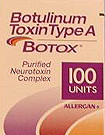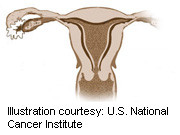OBGYN and Women's Health
Home OBGYN and Women's Health
Meds Offer Slight Symptom Relief in Overactive Bladder
Small reductions in urge incontinence episodes, voids per day with daily dose of medications
Washington D.C. Nabs Highest American Fitness Index Ranking
Followed by Minneapolis-St. Paul and San Diego as places that encourage exercise
DDW: Menopausal Hormone Tx Linked to Risk of Lower GI Bleeds
No difference in incidence of upper GI bleeding in MHT users, non-users
AUA: Botox Injections May Reduce Urinary Incontinence
Relief for majority -- but not all -- of patients who got injections for urinary incontinence
Tips Provided for Doctors Who Want to Move to Private Practice
Physicians should prepare carefully; consider finances, legal issues, and insurance
Health Care Justice Could Help End Wait for Tubal Sterilization
Implications of health care justice could impact mandatory waiting period for elective sterilization
Weight Lifting Beneficial for Breast Cancer Survivors
Slowly progressive weight lifting can reduce incidence of physical function deterioration
Iron Deficiency Seems to Affect Many Metabolic Pathways
Treatment of iron deficiency anemia linked to improvements in vitamin B12, folate, lipids
DDW: Many Probiotics Testing Positive for Trace Gluten
Tests of 22 top-selling probiotics revealed that 12 had detectable gluten
Binge Eating Disorder Creates Significant Health Care Burden
Costs are significantly higher for BED patients than for matched patients without eating disorder



















